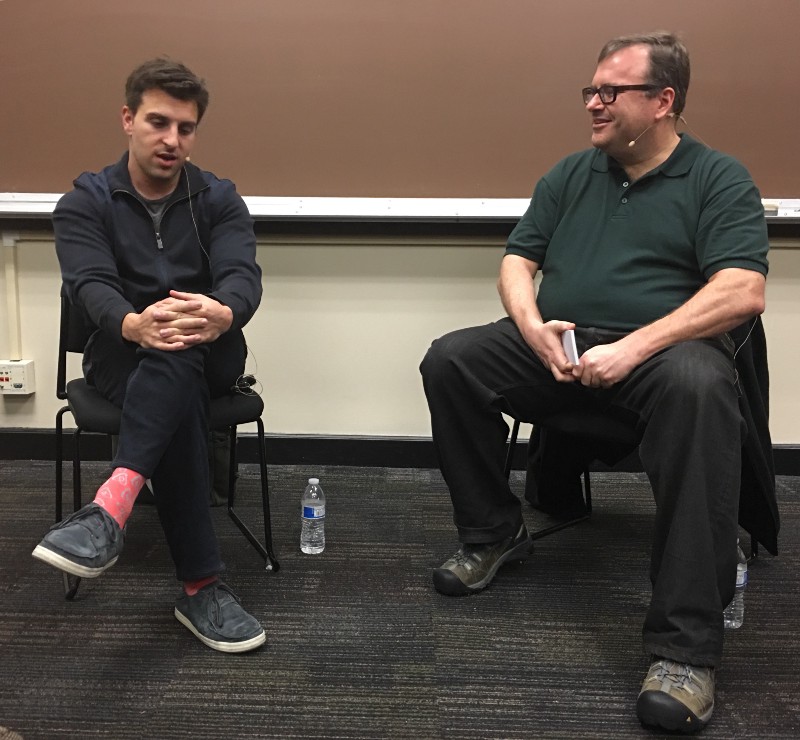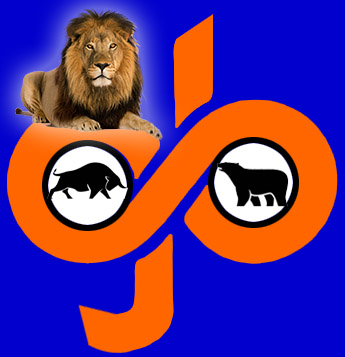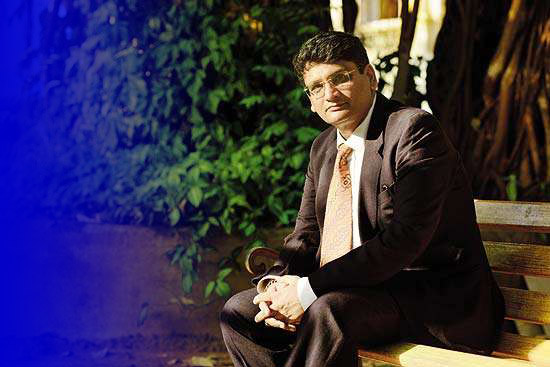Wow ! Brian Chesky of Airbnb on what it took & takes !

Inspiring Takeaways from this Interview in a Class at Stanford
-
A number of people have told me that Airbnb is the worst idea that has ever worked
Before Airbnb I was different than most tech founders because I went to art school at the Rhode Island School of Design (RISD) and studied industrial design.
-
My parents were both social workers and when I told them I was going to art school they were sure I was going to move back home. My parents always told me if I got a job I should make sure I got one with health insurance. That was the extent of my perceived ambitions.
However at RISD they told you because you were a designer, you could change things — that I could go out and do and change anything I wanted to do.
-
After school I got a job and one of my college friends Joe Gebbia kept trying to convince me to leave my job and move to San Francisco to do a startup. We had no idea what we wanted to do but we knew we wanted to do something. When I told my roommates I was leaving they thought I was crazy and needed an intervention.
At the time, I had $1,000 in my bank account and I drove to SF, this was in 2007. Upon arriving to San Francisco I had learned my portion of rent for the place we had was $1,200 so I literally didn’t have enough to pay rent.
-
we had no money — so what if we created a bed and breakfast for the design conference. The problem with this idea was we didn’t have any beds — however we did have 3 inflatable air beds. This is where we came up with the name “Air bed and breakfast” and our first site wasairbedandbreakfast.com.
-
The core idea was — what if you could book someone’s home just like you could book a hotel room, anywhere in the world.
-
We didn’t have this flash of inspiration that Air bed and breakfast was going to be huge. In fact we started building a different product — a roommate search tool. We worked on this for 4 months and then realized “roommates.com” had already built this service. I couldn’t believe how much time we wasted on this before checking the URL roommates.com
-
I learned that being an entrepreneur and being unemployed is just a difference in mindset
-
One thing I learned is, big ideas sound stupid in the beginning. I’ve always heard that if your idea is any good there is no problem with sharing it because people will dismiss it. Many ideas come from solving your own problem which aren’t life changing problems — but these ideas could potentially become life changing ideas.
-
We actually “launched” multiple times. If you launch and no one noticed — you can just launch again. We had press that wrote about us multiple times for launching.
-
we wanted guests to be able to book and pay hosts directly through us without an intermediary. Trying to do our own payments was a crazy idea and it scared us
-
In the summer of 2008 we completed the final version of Airbnb which let you book someone’s home — in 3 clicks. We took inspiration from Steve Jobs who created the iPod — designed to always be 3 clicks from a song
-
After this version of the product we were introduced to 15 angel investors — we were trying to raise $150K at a $1.5M valuation. 7 investors never responded, 8 replied — of those 4 said no “it didn’t fit within their thesis,” 1 said they didn’t like the market, and 3 just passed.
-
One of the people we met was Mike Maples of Floodgate and we were so confident after launching we decided to not have a deck and just show him our website. That day we launched (again) on TechCrunch and our whole site went down. I was in the pitch meeting without a deck and I typed in our website and our site was down — I was in the pitch meeting for an hour and the site was down the whole time it was really embarrassing. One lesson I learned is you should always have a deck just in case….
-
Joe and I both had ~$30K in credit card debt and this is what we were using to fund the company.
-
We were still in debt but we got 80 bookings during the DNC. The downside was, after the DNC we had no bookings, we were a year into the business, we were in debt, every investor said no, we launched 3 times, we had national press, and it was unclear if we were going to be around. We were at rock bottom.
-
In debt and desperate one midnight, we had the idea if the “air beds” in air bed and breakfast wasn’t working — maybe we can sell “breakfast” instead. We started thinking about president themed cereal and we convinced a producer to make cereal for us and since we couldn’t pay them he would get a portion of the sales.
-
In November 2008 we were back to being broke and we did not feel successful or talented at this point. A bunch of people had recommended we should go to YCombinator. We said “but we already launched already?” and they responded “but you are dying, you should apply to YC.”
-
He (Paul Graham of YCombinator) told us we were the cockroaches of startups, that we could survive anything — this was the best compliment we had ever gotten — we were cockroaches.
-
life is the enemy of a startup. Paul Graham always says that startups don’t die they just fade away.
While we lived together, we decided to wake up at 8am and sleep at 12am midnight and only work in between — nothing else. We did this for 4 months and completely dedicated ourselves to Airbnb.
-
Paul Graham gave us a series of advice that changed our trajectory. The most important of this advice was that it was better to have 100 people who loved us vs. 1M people who liked us. All movements grow this way.
-
We were really lucky to be able to raise $600K from Sequoia Capital
-
We found that with press the more absurd the idea — the better story it makes. Being provocative was good because people would tell other people about it.
-
5 star is what people expect. For them to love you, you need to do more than what they expect. This exercise can apply to anything you do in the company. For example we even story-boarded our whole interviewing experience and think through how to make that a 7 star experience.
-
I consider myself a designer by trade. There is a quote from Steve Jobs I liked which is: “Design is not just what it looks like and feels like. Design is how it works.”
By using this, you can imagine everything being designed. You can design a product, a company, an organization, a building, anything you want. Once you realize everything can be designed — you don’t need to use things straight out of the box — you can reinvent everything.
-
I believe culture is a shared way of doing things…. I wanted to have a strong culture — a shared mission, a way things are done, beliefs we share.
A big part of culture is hiring — who are you going to be spending a lot of time with — and how do you remove people who don’t fit within your culture. One of the strongest levers of culture is hiring.
I decided early on to interview every single person. I personally interviewed every employee up till the first ~200 employees
-
I also write an email every single night to the whole company. This isn’t a tactical email but something more thought provoking. One of the things with scale is you need to continue to repeat things. Culture at scale is all about repetition — repeating over and over again the things that matter.
-
At scale, you have to learn how to move from intuition to data
-
I think being a CEO in a hyper growth company is every 6 months you have a completely new job
-
I have personally seen and know people who have scaled and people who can’t scale. The two traits I see in common with the people who scaled is:
- Intelligence
- Curiousness
If you think you know everything, you can’t scale. I am shameless about getting feedback and knowing I don’t know it all.
There is a quote from Pablo Picasso I like: “It took me four years to paint like Raphael, but a lifetime to paint like a child.”
-
The first stage of a startup is survival. Not dying is being able to work on it the next day.
The second stage of a startup is firefighting. There are all of these problems going on and you need to fix them all.
The third stage is now other people can see what you are doing and now other companies try to copy and destroy you. The big existential threats to Airbnb were both competitors and the government.
-
This became the “bet the company” moment for Airbnb. The Samwer brothers made a proposition for Airbnb to buy their clone (what they normally like to do) but it would have been a huge cost financially and culturally.
I went out and asked advice from some of the smartest people I knew including Mark Zuckerberg, Andrew Mason, Paul Graham, and you (Reid). Andrew warned us the Samwer brothers were ruthless and would do everything they could to kill us. Mark Zuckerberg said not to buy the company because whoever has the best product will win.
Paul Graham said they are mercenaries and we were missionaries and missionaries often win.The gift the Samwer brothers gave to Airbnb was the reason to scale fast. We went from just a U.S. company to an international organization within a year.
-
Ultimately Airbnb won because of a better community and better product
-
The problem with these challenges is they are a punch in the face while you are casually walking down the street. You have no idea where they are coming from. The Samwer brothers was the first punch and government was the second.
-
We were a company about people living together — it’s not good to have a fighting approach.
Instead of fighting, we decided to kill them with kindness and partner with cities. I had always had this belief that if people didn’t like me — I wouldn’t talk to them. Instead, I learned to meet with everyone who hates me because you will hate me less if you get to know me.
-
There isn’t enough hours in the day to learn everything. So you have to short circuit the process somehow.
One approach is to learn from definitive sources.
-
Two challenges I think about a lot now though are:
- Scaling culture for our new size. What has worked for us for 500 people aren’t going to work at 2,000 people. I want us to still feel like a fast growing startup and be mission-driven but things need to change for us to keep our culture at this scale
- Most companies that are significant have more than one product line: Apple, LinkedIn, Facebook, Google. Our core product at Airbnb is growing but what opportunities do we have for new products?


1 thought on “Wow ! Brian Chesky of Airbnb on what it took & takes !”
Thanks for sharing.